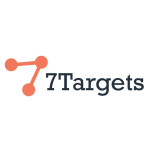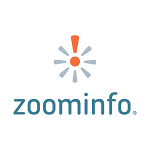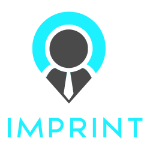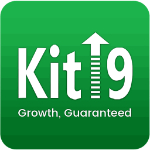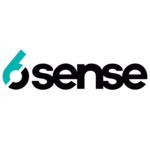TechnologyCounter provides genuine, unbiased real user reviews to help buyers make informed decisions. We may earn a referral fee when you purchase through our links, at no extra cost to you.
List of 15 Best Sales Intelligence Software
Showing 1 - 15 of 54 products7Targets is a solution for all your business communication needs! With 7Targets, you can effortlessly automate your marketing and sales processes, leading to increased efficiency and productivity. This powerful software offers personalized messaging,...Read 7Targets Reviews
ZoomInfo is a platform that revolutionizes the way businesses identify, target, and engage with potential customers. With its extensive database of contact and company information, ZoomInfo provides businesses with invaluable insights and connections...Read ZoomInfo Reviews
TranZact is an ERP software designed for small and medium-sized manufacturers in India. With its user-friendly interface, TranZact allows you to transform your business by digitizing the entire process, from sales inquiry to dispatch. It offers the...Read TranZact Reviews
Sterison Distribution is a software like no other, designed to modernize and streamline distribution processes for businesses of all sizes. With its advanced technology and user-friendly interface, Sterison Distribution simplifies inventory managemen...Read Sterison Distribution Reviews
Are you in search of a powerful is a software that can take your digital imprinting to the next level? Look no further than Imprint - Asti. Designed to streamline and simplify the imprinting process, this software offers unparalleled precision and sp...Read Imprint - Asti Reviews
Kit19 is a solution for effortless is a management of projects, tasks, and teamwork. This innovative software is designed to simplify collaboration, streamline communication, and boost productivity. With Kit19, stay ahead of the game and achieve your...Read Kit19 Reviews
Lead Pyramid is a pioneering chrome extension that ensures the accuracy of data as it is collected, resulting in increased customer satisfaction due to the high quality of data that meets or exceeds their expectations...Read Lead Pyramid Reviews
DemandFarm is a solution for managing and nurturing key accounts. With a user-friendly interface features, DemandFarm simplifies the process of identifying, engaging, and growing key accounts. Say goodbye to complicated spreadsheets and hello to stre...Read DemandFarm Reviews
BeatRoute is a solution for efficient and organized sales management. Streamline your sales processes, track client interactions, and optimize your teams performance with this powerful software. Say goodbye to tedious paperwork and hello to a streaml...Read BeatRoute Reviews
Koncert Cadence is a event management software designed to simplify the process of organizing and managing concerts. Packed with powerful features and user-friendly interface, Koncert Cadence ensures smooth is a planning, execution, and promotion of...Read Koncert Cadence Reviews
6sense is a software that transforms the way businesses engage with their customers. Offering unique insights, intuitive interface and unmatched accuracy, 6sense is a tool for businesses to anticipate customer behavior, increase revenue and stay ahea...Read 6sense Reviews
Nutshell CRM, a powerful customer relationship management platform designed to help businesses of all sizes streamline their sales processes and improve customer interactions. With intuitive features and user-friendly interface, Nutshell CRM is the p...Read Nutshell CRM Reviews
Intricately is a software that provides detailed insights into the intricacies of your digital infrastructure with its innovative capabilities. Experience a new level of understanding your digital footprint that goes beyond just numbers and statistic...Read Intricately Reviews
Visual Visitor is much more than just a regular website visitor tracking software. It is a tool that helps businesses identify their website visitors, track their behavior, and convert them into leads. With its innovative features and user-friendly i...Read Visual Visitor Reviews
- What Is Sales Intelligence Software?
- Top Reasons Why Businesses Need Sales Intelligence Software?
- What Are the Top Key Features of Sales Intelligence Software?
- What Are the Top Benefits of Sales Intelligence Software?
- What Are the Steps to Choose the Right Sales Intelligence Software?
- What Are the Types of Sales Intelligence Software for Different Industries?
- What Are the Technology Trends for Best Sales Intelligence Software?
- What Are the Deployment Options for Sales Intelligence Software?
What Is Sales Intelligence Software?
Sales intelligence software refers to a product or system that is employed to facilitate sales-related operations and get a comprehensive understanding of client behavior. Sales teams are able to collect, analyze, and utilize client data in order to make informed decisions and identify novel prospects.
Through the collection and utilization of data from many sources, sales teams are able to gain insight into client interactions with their firm, discern patterns, and formulate strategies that enhance competitiveness. The best sales intelligence tools operates by integrating client data from several sources into a unified platform.
This software facilitates the aggregation of data from many client touchpoints, encompassing website visits, email communications, sales calls, and historical transactions, so enabling teams to consolidate and analyze comprehensive customer contact data.
After the collection of data, sales teams have the ability to utilize it for the purpose of identifying possible leads and making necessary adjustments to their tactics in order to effectively target their desired consumer segment.
Sales intelligence software provides teams with valuable insights into customer behavior, including factors like as customer loyalty, buy frequency, and preferences. Organizations can utilize this data to enhance marketing and sales strategies, develop tailored user journeys, and customise promotional offerings.
Additionally, it can enhance comprehension of the client journey, enabling sales teams to adopt a proactive approach towards customer relationships and anticipate customer requirements.
Top Reasons Why Businesses Need Sales Intelligence Software?
1. Dynamic data-driven insights: Sales Intelligence software offers valuable insights into customer data, facilitating enhanced business decision-making processes.
2. Improve sales forecasting accuracy: The software facilitates the precise prediction of sales, the detection of market trends, and the implementation of remedial measures as necessary.
3. Monitor and analyze competitors: By utilizing predictive analytics, The best sales Intelligence tools has the capability to assist firms in monitoring and analyzing competition information, thereby enhancing their competitive advantage.
4. Better insights into customer behavior: The objective is to analyze consumer purchasing patterns, detect areas of dissatisfaction, and acquire a deeper understanding of customer behavior to enhance customer relationships.
5. Real-time analysis: High-caliber software solutions provide real-time updates and data analysis capabilities, hence enhancing efficiency.
6. Automation of manual processes: The implementation of automation can enhance the efficiency of sales operations by streamlining human duties such as sales forecasting, lead validation, and client segmentation.
7. Lead generation: Efficiently discern prospective clientele through the utilization of pertinent data-driven leads in order to enhance sales efficacy.
8. Increase customer lifetime value: Sales Intelligence software enables organizations to effectively identify consumers who are more likely to exhibit loyalty and establish enduring relationships with the company.
9. Optimizing Customer Relationship Management (CRM): Effortlessly establish a seamless integration between customer relationship management (CRM) data and sales and marketing information in order to enhance client engagement and bolster customer retention.
10. Churn reduction: One potential strategy for reducing customer turnover rate is the implementation of automated client segmentation and marketing technologies.
11. Improved sales team performance: The objective is to monitor and evaluate the performance of sales representatives and implement necessary measures to ensure adherence to established metrics and achievement of sales objectives.
12. Automate customer segmentation: Efficiently categorize customers into distinct segments according to their behavioral patterns and preferences, enabling the implementation of personalized and focused marketing strategies.
13. Identify opportunities and risk: The utilization of predictive analytics inside sales intelligence software enables the tracking of potential opportunities and identification of potential dangers.
14. Increase customer satisfaction: Gather feedback from clientele in order to gain insights and enhance the overall customer experience.
15. Comprehensive customer insights: In order to enhance the efficacy of marketing efforts, it is important to acquire in-depth understanding of client spending behaviors, trends, and preferences. This will enable the development of more effective strategies for designing successful marketing campaigns.
What Are the Top Key Features of Sales Intelligence Software?
The top key features of sales intelligence software include:
1. Real-time Insights: To optimize sales representatives' lead targeting, it is imperative to automatically provide them with up-to-date insights derived from various data sources.
2. Comprehensive Analysis: Conduct an analysis and segmentation of the customer data in order to develop comprehensive customer profiles and implement automated customer segmentation.
3. Advanced Targeting: Utilize sophisticated targeting mechanisms to discern optimal customer prospects and establish a hierarchy of connections for the purposes of upselling and cross-selling.
4. Lead Management: The objective of the best sales intelligence tools is to optimize conversion rates by employing automated methods to track, monitor, and prioritize leads within predefined segments.
5. Analytics & Reporting: Utilize extensive analytics to forecast client behavior and produce performance reports.
6. Automation: The automation of repetitive operations and procedures involves the implementation of systems that may perform actions such as creating follow-up reminders, scheduling emails, and sending contact invites.
7. Integration: By integrating with customer relationship management (CRM) and marketing automation tools, organizations may establish a cohesive workflow that facilitates efficient and effective operations.
8. Mobile Optimization: To maintain seamless connectivity between sales representatives and prospects throughout all stages, it is imperative to offer mobile accessibility to essential information and customer profiles.
9. Privacy & Security: To safeguard the confidentiality and integrity of consumer data, it is imperative to implement robust security measures.
What Are the Top Benefits of Sales Intelligence Software?
The best sales intelligence software can offer a number of advantages for businesses, including:
1. Enhanced analysis and better sales decisions: The best sales intelligence tools enable a more comprehensive examination of client data, thereby equipping sales teams with the necessary knowledge to discern the most favorable sales prospects and enhance customer interaction.
2. Improved customer segmentation: Sales intelligence software has the capability to enhance the customer segmentation process by enabling businesses to focus their efforts on the most promising clients and provide highly effective marketing messages.
3. Increased visibility and accountability: Top sales intelligence tools offer immediate insight and responsibility about sales success, enabling sales teams to promptly recognize potential challenges and prospects inside their sales procedures.
4. Better collaboration between teams: The utilization of the best sales intelligence tools has the potential to enhance collaboration among several departments, including sales, marketing, support, and operations. This is achieved by establishing a unified platform that enables the sharing and retrieval of client data.
5. Cross-channel sales capabilities: Sales intelligence software facilitates enhanced comprehension of consumer behavior across several channels, hence furnishing significant insights for the identification of cross-channel chances.
6. Automated lead scoring: Top sales intelligence tools have the capability to automate the lead scoring process, thereby streamlining and expediting the prioritization of leads according to their probability of converting into prospective clients.
7. Improved customer insights: Sales intelligence software is capable of collecting and analyzing customer data to offer more profound insights, hence assisting sales teams in gaining a deeper understanding of client interests and preferences.
8. Enhanced customer engagement: Sales intelligence software has the potential to enhance customer engagement for sales teams through the provision of tailored experiences.
What Are the Steps to Choose the Right Sales Intelligence Software?
1. Understand Your Needs: The evaluation of one's present sales cycle is of utmost importance in order to gain a comprehensive understanding of individual sales requirements and the necessary functionalities that a sales intelligence software should include. Consider the data that you desire to gather and analyze, the intended utilization of that data, and its potential integration with other systems present inside your firm.
2. Research Potential Platforms: It is advisable to allocate sufficient time for the evaluation of various platforms and conduct a comprehensive comparison of their respective features and capabilities. It is advisable to evaluate both open source and commercial alternatives, since the best sales intelligence software solutions may be more suitable for fulfilling your specific requirements compared to others.
3. Identify Deal Breakers: Please compile a comprehensive inventory of essential features and non-negotiable criteria that the software must possess in order to be considered for selection. If there are any features that are currently unnecessary, it is advisable to make a note of them, since they may become necessary in the future.
4. Assess Your Team’s Compatibility: When evaluating the tools, it is imperative to take into account the manner in which your team will utilize the software. Ensuring a user-friendly platform with seamless navigation and the capability to update and evaluate data is of utmost significance.
5. Know Your Costs: Evaluate the financial implications linked to the various alternatives and juxtapose them against your predetermined budgetary constraints. Certain top sales intelligence tools options may necessitate a yearly commitment, but others offer the flexibility to be tailored for short-term usage.
6. Test the Software: Please arrange a demonstration and conduct a software test to verify its compatibility with the specific requirements of your firm. If feasible, it is advisable to do repeated user tests to ensure that all members of your team can comfortably utilize the system.
7. Review Client Feedback: It is recommended to solicit references from previous clients and conduct a thorough examination of online feedback. This can provide insights on the software's functionalities and efficacy, as well as the responsiveness of the support team in addressing client inquiries and demands.
8. Make Your Decision: Once all the requisite information has been collected, an adequate amount of data should be available to facilitate a well-informed decision-making process. It is imperative to ensure that the software selected is capable of effectively supporting the sales process.
What Are the Types of Sales Intelligence Software for Different Industries?
The best sales intelligence tools can manifest in several forms, contingent upon the industry and specific requirements. There exists a range of best sales intelligence software options that cater to various businesses.
1. Customer Relationship Management (CRM) software: Customer Relationship Management (CRM) software is employed for the purpose of storing and monitoring customer information, overseeing sales and marketing endeavors, and streamlining customer support procedures. This software is widely utilized across various businesses and offers significant insights into client behavior, sales patterns, and other pertinent aspects.
2. Social Media Monitoring Software: This program is designed to monitor social media activity and comments pertaining to specific brand-related subjects, with the aim of assisting enterprises in identifying prospective sales prospects and enhancing consumer interaction.
3. Data Mining & Analysis Software: The software in question conducts an analysis of extensive data sets in order to furnish organizations with significant insights pertaining to customer sales patterns and purchasing behavior. Based on the findings of this analysis, sales teams have the ability to effectively focus their efforts on certain customer segments and thereby enhance their decision-making processes.
4. Predictive Analytics Software: Predictive analytics leverages a fusion of mathematical principles, statistical techniques, and machine learning algorithms to generate forecasts pertaining to forthcoming occurrences. This program possesses the capability to monitor and analyze client sales patterns, hence enabling the precise identification and targeting of possible customer segments.
5. Reporting and Dashboarding Software: The reporting and dashboarding software facilitates the expeditious generation of visual representations, enabling sales teams to comprehend client data and effectively communicate insights to various departments inside the organization.
What Are the Technology Trends for Best Sales Intelligence Software?
The technology trends for best sales intelligence software include:
1. Automated lead scoring: The implementation of automated lead scoring enables sales professionals to efficiently discern the leads that exhibit the highest probability of converting into paying customers.
2. AI and machine learning: Artificial intelligence (AI) and machine learning (ML) have the potential to assist sales teams in efficiently identifying areas that require enhancement and optimizing their sales efficacy.
3. Advanced data analytics: Advanced data analytics offer enhanced insights into client preferences and behavior, enabling sales teams to identify optimal prospects and generate more precise predictions.
4. Social selling: Social selling enables sales teams to efficiently cultivate client relationships by leveraging social media channels.
5. Automated sales processes: Automated sales procedures facilitate the expeditious and effective execution of sales team responsibilities, so liberating significant temporal resources for alternative endeavors.
What Are the Deployment Options for Sales Intelligence Software?
The available deployment choices for sales intelligence software are contingent upon the specific characteristics of the product.
Typically, software is widely deployed in either SaaS (Software as a Service) models or on-premise formats. Software as a Service (SaaS) models often necessitate no supplementary hardware or infrastructure expenditures as the software is distributed via the cloud and can be accessed from any device.
Moreover, sales organizations commonly adopt a payment structure based on subscriptions, with relatively negligible expenses incurred for other related charges.
The on-premise methods necessitate the hosting of the program on a server located within the organization's premises. This requires the acquisition of supplementary hardware and equipment. This solution may be suitable for organizations with intricate specifications or those handling highly confidential information.
Moreover, several firms exhibit a preference for exerting greater control over their data security, a requirement that can be more effectively fulfilled through the use of on-premises solutions.
